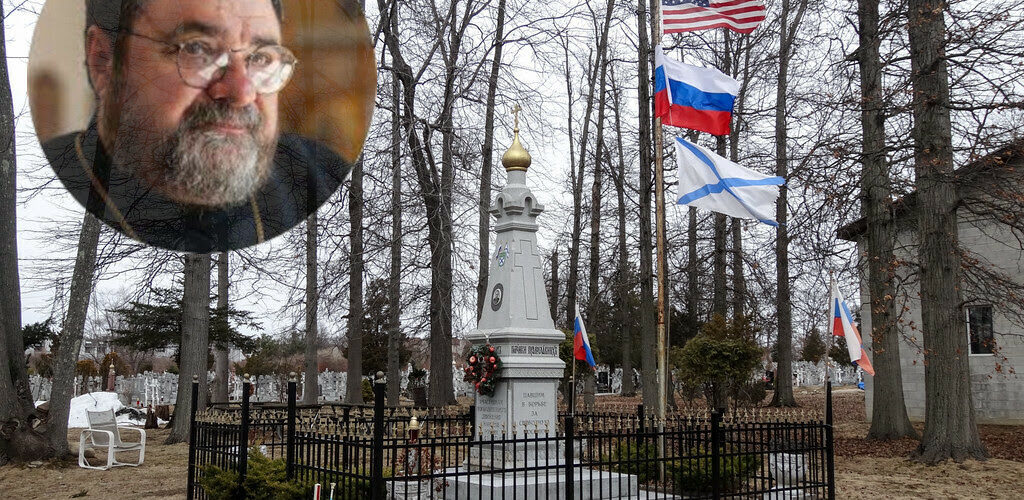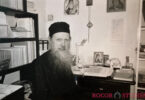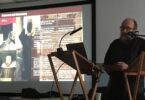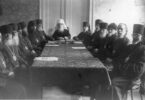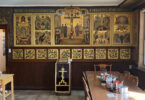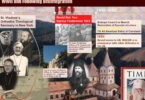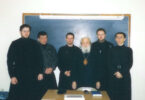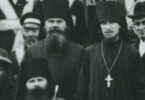Archpriest George Mitrofanov was born on this day in 1958.
Ever since the reconciliation with the Moscow Patriarchate in 2007, there have been voices in the Russian Church Abroad that she has shied away from standing up to the authorities of the Moscow Patriarchate whenever occasions for disagreement have arisen.
The case of Fr. George Mitrofanov is one where our bishops decided to stand up for a priest of the Moscow Patriarchate. Fr. George was born in 1958 in Leningrad. He graduated from the Seminary and Academy there and in 1988, was ordained priest by Patriarch Aleksii II, then Metropolitan of Leningrad. In the same year, Fr. George began to teach history at the Saint Petersburg theological schools.
Fr. George was a member of the dynamic team, which produced Basis of Social Doctrine of the Russian Orthodox Church approved by the Bishop Council in 2000. The moderator during the work on this document was Metropolitan Kirill (Gundiaev) of Smolensk and Kaliningrad. The document came out vibrant because it drew on world views from both “liberals” and “conservatives,” including among: Metropolitan Hilarion (Alfeev), Archpriests Vladislav Tsypin, Nikolai Balashov, Vsevolod Chaplin (d. 2020), Aleksei I. Osipov and Andrei B. Zubov.
Fr. George was a vocal advocate of the rigid decommunization of Russia on par with the denazification of Germany following World War II. His critique of contemporary Russia, where both the ecclesiastical and secular authorities have synthetized the Russian imperial traditions with the Soviet past, resonated with the bishops of the Russian Church Abroad. Additionally, Fr. George’s faithfulness to the ideals of the White Army and apologetic attitude toward the Russian Nazi collaborationists led by General Andrei V. Vlasov during World War II earned him “extra credit” with certain ROCOR bishops and clergymen.
In September 2009, the ROCOR Synod of Bishops stood up to defend Fr. George, whose recent book Tragediia Rossii: Zapretnye temy istorii XX veka [The Tragedy of Russia. Forbidden Themes in the History of the 20th Century] had stirred up a harsh discussion within Russia, where any attempts to rehabilitate General Vlasov are equated to a personal challenge to the nation, which lost 20 million during World War II.
This act by the ROCOR Synod was the first instance of disagreement with the Russian Church “mainstream” since reconciliation in 2007. What is also important is that the discussion surrounding Fr. George’s views produced an important document from the ROCOR German Diocese, claiming the art of the historian to be sacrosanct:
“Historical practice must receive a strong factual basis through the opening of the archives. The work must be carried out not amid repressive and propagandistic shouts, but in an atmosphere of full methodological liberty. Through living, open, and fearless dialogue, Russian historiography is called and can make, at last, a true and peace-making statement, through a balanced assessment of the tragedy that afflicted so many nations in the twentieth century.”
I haven’t heard much of Fr. George Mitrofanov recently, but I did just notice that his name was not included in the list of the members of Inter-Conciliar Assembly (ICA), updated at the meeting of the Synod of Moscow Patriarchate in March of this year. I hope that it is because of his sporadic participation in the work of the ICA rather than for any other reasons. So, happy Birthday, Father George, and mnogaia leta (many years) to you!
Read the Full Message Here:
Bishop Agapit of Stuttgart (†2020), Message to the Participants in the Conference “A Scientific Orthodox View of False Historiography, Historical Studies of the Russian Church Abroad
Relevant Resources in Historical Studies of the Russian Church Abroad:
My Interviews with Fr. George Mitrofanov:
“The Outcasts United with the Outcasts: On the Eight Anniversary of the Reestablishment of Canonical Communion within the Russian Orthodox Church.”
“Political Ideology in the Church Is a Dead-End.”
Maria A. Psarev, “Sources on the History of General A. A. Vlasov and the Russian Liberation Army (1942–1945): from Archive Materials of the Federal Republic of Germany.”

